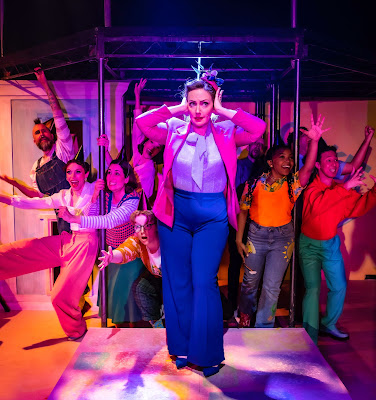Royal Festival Hall, London
*****
Composed by John Williams
Conducted by Anthony Gabriele
Directed by Steven Spielberg
Steven Spielberg’s genius in narrating a story through film, is unsurpassed. His envisioning of a plot’s evolution told through either grand scenic presentations or just the subtlest glance of a protagonist, holds us spellbound. And no more so is Spielberg’s craft evident than in his 1982 blockbuster E.T. The Extra Terrestrial, that told of an alien creature (E.T.) left behind in California when its spaceship had to hurriedly flee Earth to avoid capture, the movie then exploring the bond that evolved between E.T. and the young boy Elliott who found and befriended the creature.
The story is genius in itself – in a concept first explored by Spielberg in the 1977 movie Close Encounters Of The Third Kind, his aliens are friendly. They come in peace, with the theme of the 1982 picture being a child’s and E.T.’s innocent love for each other. And so, with a combination of stunning performances, ingenious special effects – all the more so when one recalls that this was before the time of today’s ubiquitous CGI - and gorgeous photography, Spielberg’s story was told.
But there was a further component, critical to the hallmarking of this movie as worthy of the pantheon and that was its score. And in Spielberg’s wonderfully well-established partnership with composer John Williams, so was a symphonic accompaniment achieved that not only enhanced the arc of the story, it served to tell parts of the story too such is Williams’ talent.
Last week, under the baton of Anthony Gabriele and for one night only, London’s Philharmonia Orchestra played William’s score live alongside the movie being screened. Gabriele is a master of synchronising an orchestra’s live performance to the unforgiving fixed demands of a movie screening and his coaxing the aural beauty of the Philharmonia’s talent, opened up new layers of nuance to this wonderful fable.
No plot discussions here – most people know the tale, how it develops and how it ends. But when one recalls the movie’s unforgettable scene of Elliott, with E.T. in his bicycle basket, flying (cycling) in silhouette past the moon – an image that now defines Spielberg’s own production company Amblin Entertainment – it is Williams’ Flying theme that we hear. And to hear that glorious melody played live as Elliott dreamily pedals across the screen is just exquisite.
The Philharmonia are of course world-class, and their delivery of William’s score was flawless. To name individual performers is invidious – they are all masters (and indeed many are Professors of their chosen instrument) but amidst such a plethora of perfection, to be able to glance down from the screen and observe harpist Heidi Krutzen adding to the film’s gorgeous sensitivities or in contrast Antoine Siguré’s menacing work on the timpani was sublime. And of course, during Flying, it was Zsolt-Tihamer Visontay and Emily Davis whose violin sections were chiefly responsible for making the audience’s spirits soar.
This combination of a classic film, projected over the heads of the players and instruments of one of the finest orchestras around and all helmed under Gabriele’s masterful baton, created an evening that that was simply out of this world!


